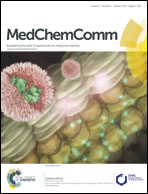Ambient mass spectrometry technologies for the detection of falsified drugs
Abstract
Increased globalization of the pharmaceutical market has facilitated the unobstructed and fast spread of poor-quality medicines. Poor-quality medicines include spurious/falsely-labeled/falsified/counterfeit drugs (those that are deliberately and fraudulently mislabeled with respect to content and/or origin), substandard drugs (legitimate drugs that do not meet their quality specifications), and degraded medicines (good quality pharmaceuticals that suffered from deterioration caused by improper storage or distribution). Consumption of poor-quality pharmaceuticals is likely to increase morbidity and mortality. Moreover, poor-quality drugs can also contribute to the development of resistance to anti-infective medicines and decrease the quality of health care received by patients. To assess the true prevalence of poor quality drugs, tiered technology approaches enabling the testing of drug samples collected at points of sale are required, thus ensuring public health standards. High throughput and high resolution ambient mass spectrometry techniques allow investigation of pharmaceuticals with minimal or no sample preparation, thus possessing capabilities to survey a large number of drug samples for their authenticity.


 Please wait while we load your content...
Please wait while we load your content...